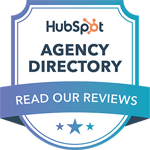
I read a really great article today on Search Engine Watch by Chuck Price about link building in 2013. In his article, Chuck talks about risks vs. rewards and the various methods which are still safe to practice in the post-Penguin era. The article is fantastic because Chuck takes a no-BS, practical approach and shares some excellent tips that we can all learn from.
What's Changed in the Link Building Industry?
Here are my main takeaways from Chuck's article:
High Risk - Low Rewards:
No longer an option (was it ever?). That includes private blog networks (BuildMyRank, Article Marketing Automation, etc), spammy tools like SENuke, spammy forum links, submission to thousands of zero-quality web directories, spun content and any other manipulative technique that has become too obvious to Google.
High Risk - High Reward:
Paid links. If you are going after paid links just for the sake of link building (rather than traffic) you better cover your tracks. For example no bulk-purchase via link brokers (e.g. TextLinkAds), no purchase of side-links or site-wide links, etc. If you can identify a paid link be sure Google can do the same.
Low Risk - Low Reward:
Irrelevant and mediocre content with no marketing strategy to drive it and no target audience to read it. Traditional article marketing and low quality press releases definitely apply here.
Low Risk - High Reward:
Chuck talks about link earning, or links that have to be manually reviewed by editors. I believe that high quality guest posting falls into this category, as well as press releases that actually have some meaningful news to share. Most importantly, this relates to quality and linkable content that you should publish on your website that in return would draw traffic and natural links from your followers.
Top 7 Link Building Strategies in 2013 that are Penguin-Proof
In his article Chuck mentions the following link building methods that are considered a safe and effective practice post Penguin:
- Reclaim links that you already own such as fixing broken links that are pointing at your website - goes without saying.
- Automatic attribution. Using a service link Tynt you can automatically add a URL link "signature" to any content copied off your website - this is a fantastic way to create more natural links to your content as well as driving more content - douze points!
- Get image links from RSS directories. This is probably a less known method but I agree it's a great way to create image links to your website while adding great diversity to your overall link profile. There are plenty of RSS directories out there, for example check this list of 60 RSS directories you can work with.
- Niche directories. This is no news but I must say that in 2013 I would approach Niche directories differently. I would look for niche directories that are old enough, NOT free and that DO enforce human editorial guidelines. In a way, it is merely another way to purchase links (ironic isn't it).
- Donation to charities and non-profits. Personally I am not much of a fan of these donation pages because I think this technique is already being misused by so many SEOs and it is only a matter of time until the big G is going treat it like any other spammy directory out there. Want to see for yourself? Take a close look at this page and this one - now ask yourself, does it look legit? If you want to go this way make sure to donate to reputable organizations only - avoid all the rest.
- Join local business groups and local clubs such as the Better Business Bureau (BBB) and the Chamber of Commerce. Again, no news here and yes, it should still work because it is legit. Same applies for university job boards, local bulletin boards (think Craig's List), etc.
- Twitter links. Right on. If you don't include in your Twitter profile a link or two to your most important web properties - you are definitely lots of link building opportunities. Chuck referred to a great post by Kristi Hines listing 15 websites that would link to URLs on your Twitter profile, and I am certain there are plenty more out there.
The Safest Path is Also The Right One
As much as I enjoyed Chuck's article I believe that link building in 2013 should be mostly a by-product of the content you are able to generate and the way you market this content. If people like to read your stuff, they will follow you and occasionally link to you in the most natural manner. These natural earned links will drive more value to your website than any other technique listed above.




